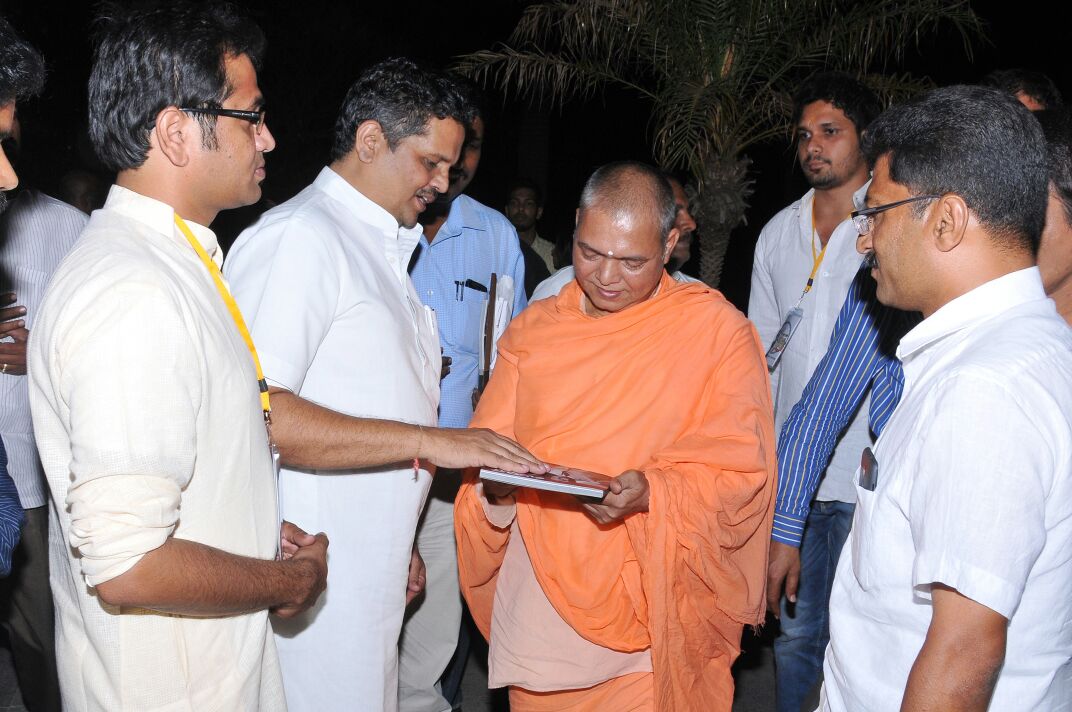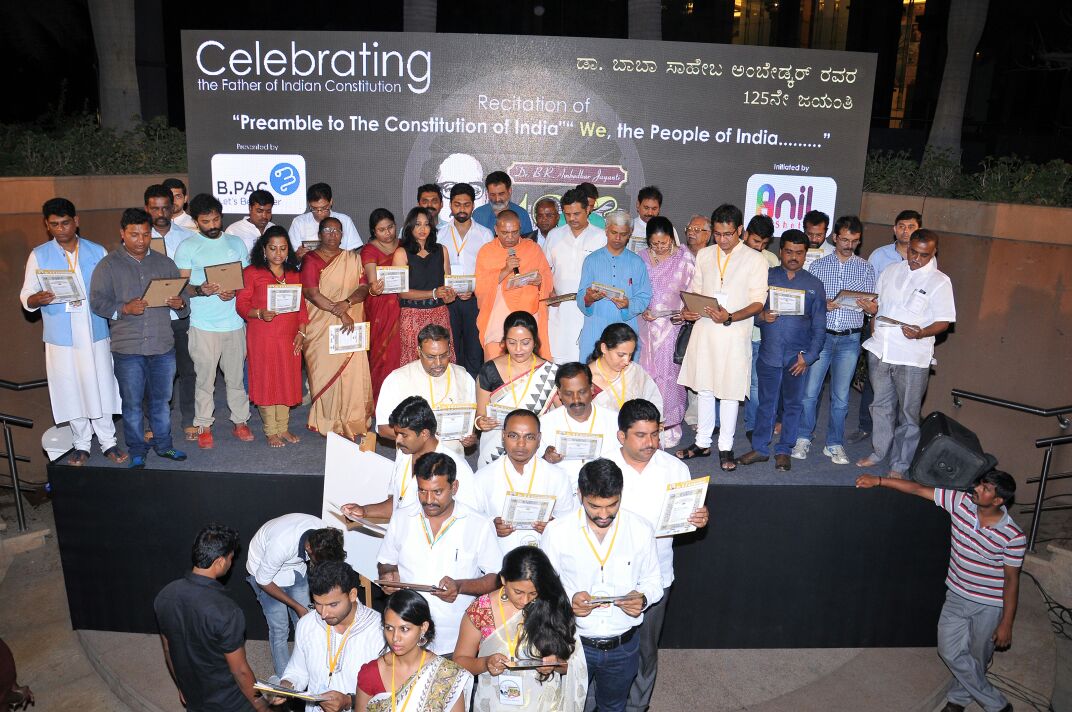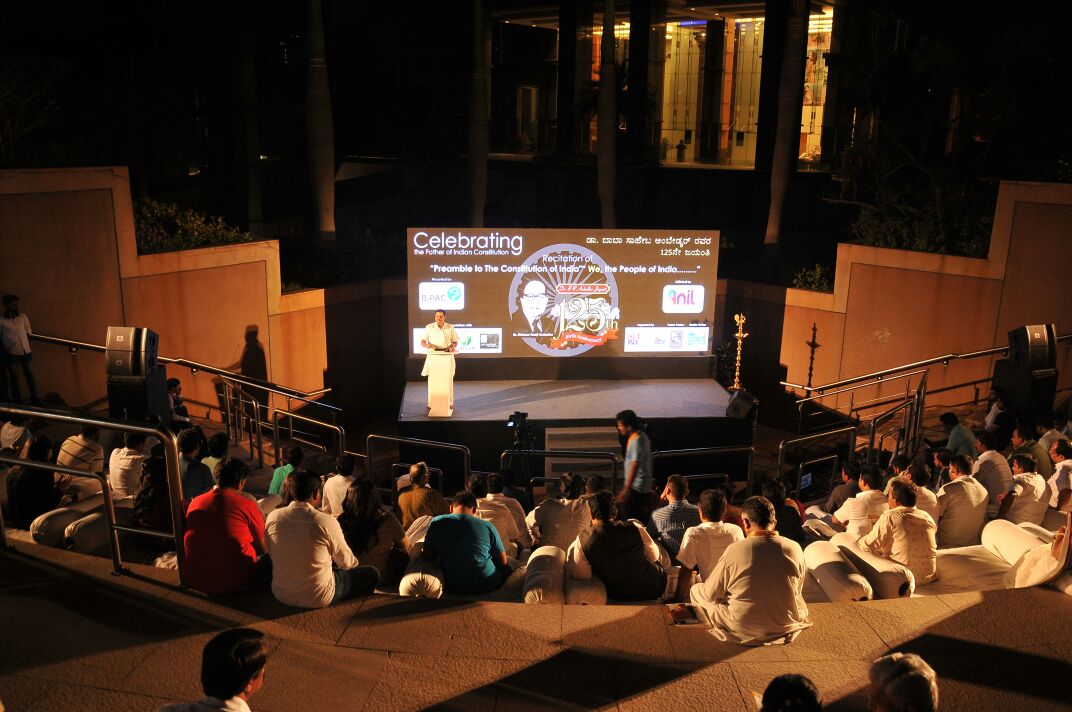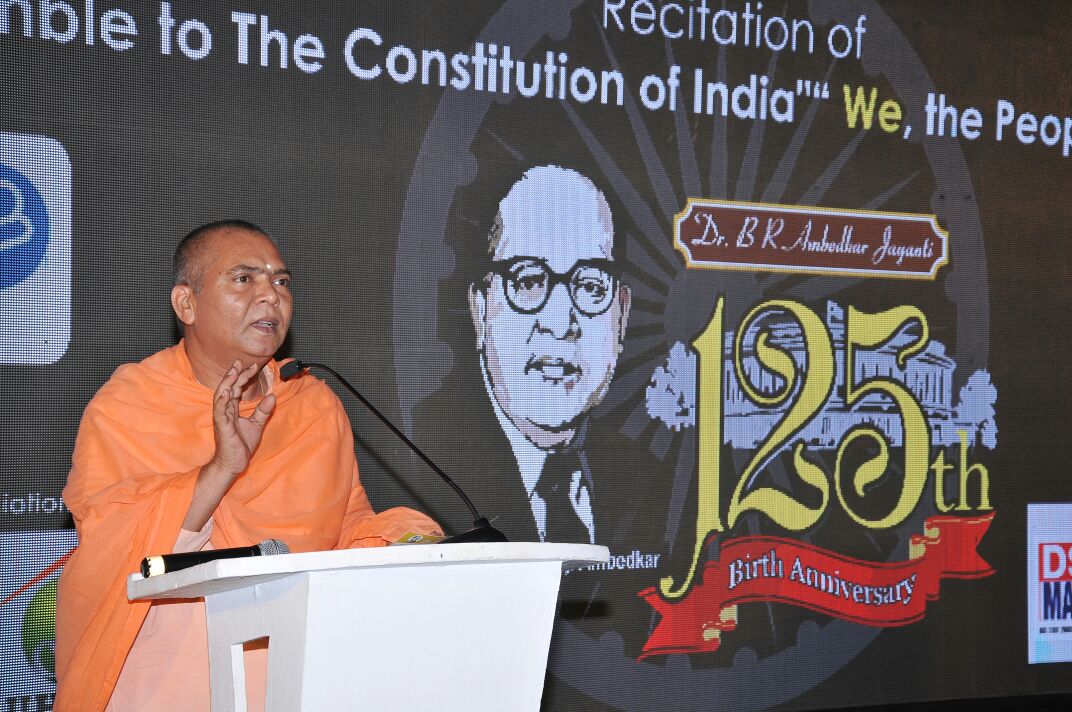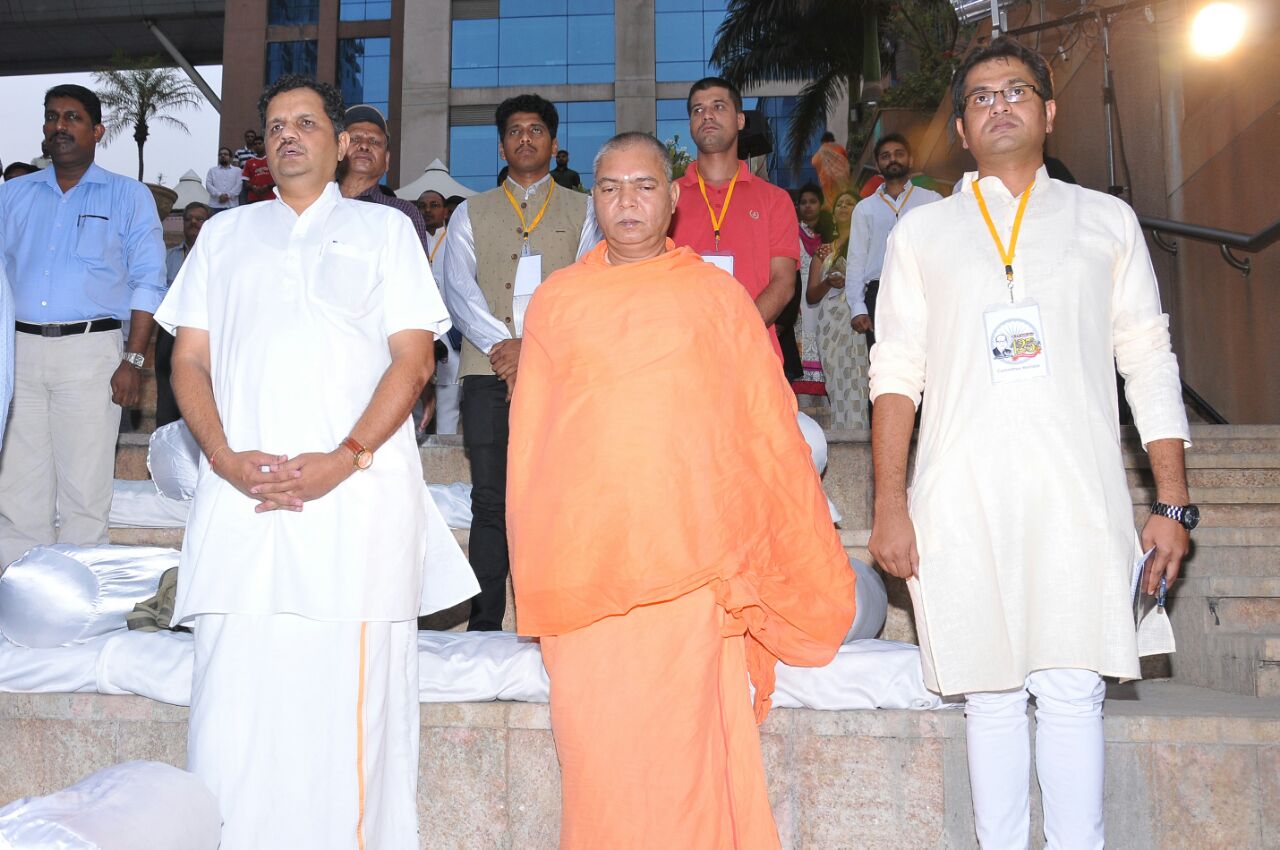
RSS Akhuil Bharatiya Sah Bouddhik Pramukh Mukunda CR addressing
UB City, Bengaluru April 16, 2016: “Dr Ambedkar was a great visionary social reformer of the past century. We still remember this great icon for his massive effort of social upliftment of the people of so called backward castes. Dr Ambedkar’s life, legacy and his contribution was significant to correct few ailments like untouchability, casteism, social discrimination etc in the MathruSamaj. We should create and spread awareness about the mission of Dr. Ambedkar for fundamental social reform and help transform our villages away from social inequality into havens of social harmony ” said Mukunda CR, RSS Akhil Bharatiya Sah Bouddhik Pramukh at 125th Birth Anniversary celebration of Dr BR Ambedkar, held at reputed UB City of Bengaluru.
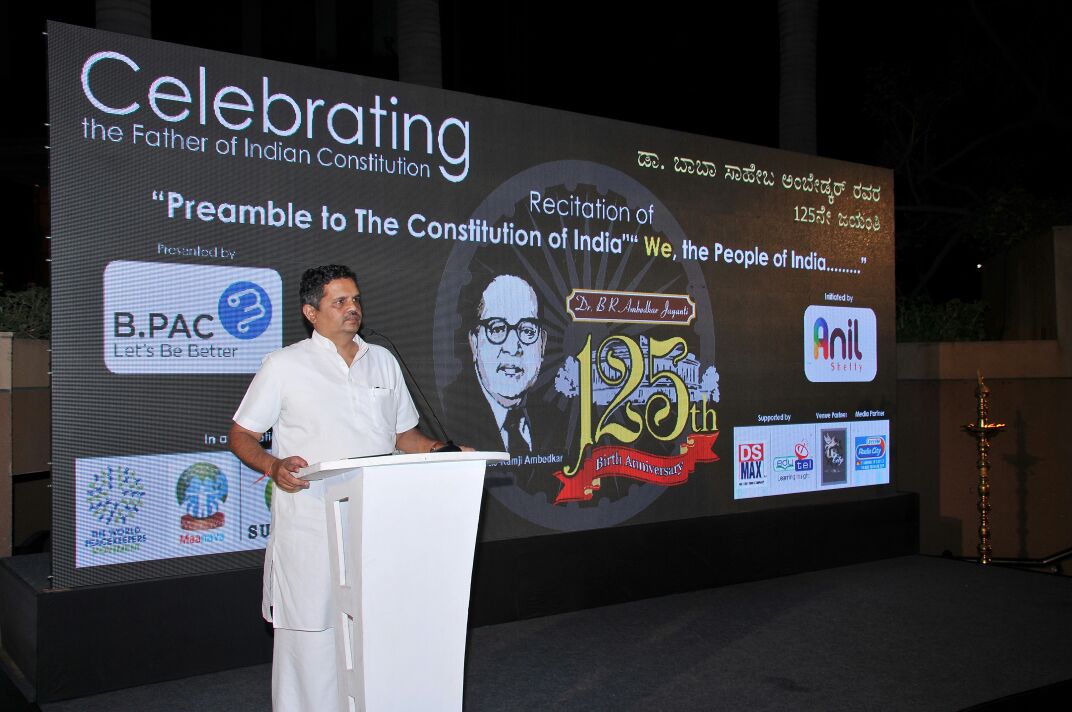
The event was organised by B-PAAC, a forum for better Bengaluru.
Salient points from CR Mukunda’s speech:
- Bhim Rao Ambedkar is acclaimed for his leadership role in drafting the Indian constitution, for his expertise in law and economics, for his scholarship on China and Pakistan, etc.
- But, the most important and socially relevant part of Dr. Ambedkar’s life and views or thoughts involves social equality and ending of caste-based discrimination
- His life’s mission was to remove the fundamental distortions and degradations that had come to wreck the Hindu society over a period of many centuries, even millennia.
- So, while his contribution as a Constitution maker is praise-worthy, his work as a social reformer who dedicated his life to remove social discrimination against the so-called marginalized communities or Dalits is the most relevant for today
- Because, although in cities, the scourge of untouchability has lost its grip over the people, in villages of today, the abhorrent practice still continues
- We learn from the surveys conducted by RSS across the nation that in public places like hotels, the practice of untouchability still continues. The practice of serving water in plastic cups for those who are considered untouchables still continues.
- In villages, there is still discrimination and injustice in the use of public roads by the so-called untouchable, in areas where the upper castes live in large numbers.
- This is the case in Karnataka also. Be it discrimination in use of public wells, entry into temples, use of public cremation grounds, the practice of social untouchability and discrimination still continues
- Ambedkar tried to rectify this situation by his speeches, writings and activism. But, he was disappointed that the Hindu society did not respond positively to his efforts. This led to his conversion to Buddhism, which he must have reckoned as a shock treatment to the insensitive Hindus who refused to heed his call to social reforms.
- Ambedkar hailed from a family that had many members who served in the Indian Army. He knew how to fight like a soldier as well as the ideals of peace as preached by Buddha.
- So, as we commemorate Dr. Ambedkar’s life and works this year and in future, we should remember that conditions of social discrimination and prejudice against the so-called lower castes and untouchables, which existed during his time more than a hundred years ago, still continue to prevail in many of our villages today.
- So, as people living in cities who are educated and who have the ability to think and act as reformers, we should create and spread awareness about the mission of Dr. Ambedkar for fundamental social reform and help transform our villages away from social inequality into havens of social harmony.
Pujya Channamalla Swamiji of Nidumamidi Matha, TV Mohandas Pai, Writer Dr Doddarange Gouda, Dr Sandeep Patil of Aikyata Foundation, Socially active Businessman Anil Shetty, Journalist Ravi Hedge, leaders of Congress, BJP, JD-S, Dalit Organisations, Cine Stars, Corporate personalities. techies, students and many more attended the event.
It was first of its kind of program held at UB City, one of most busiest corporate venues of Bengaluru.
